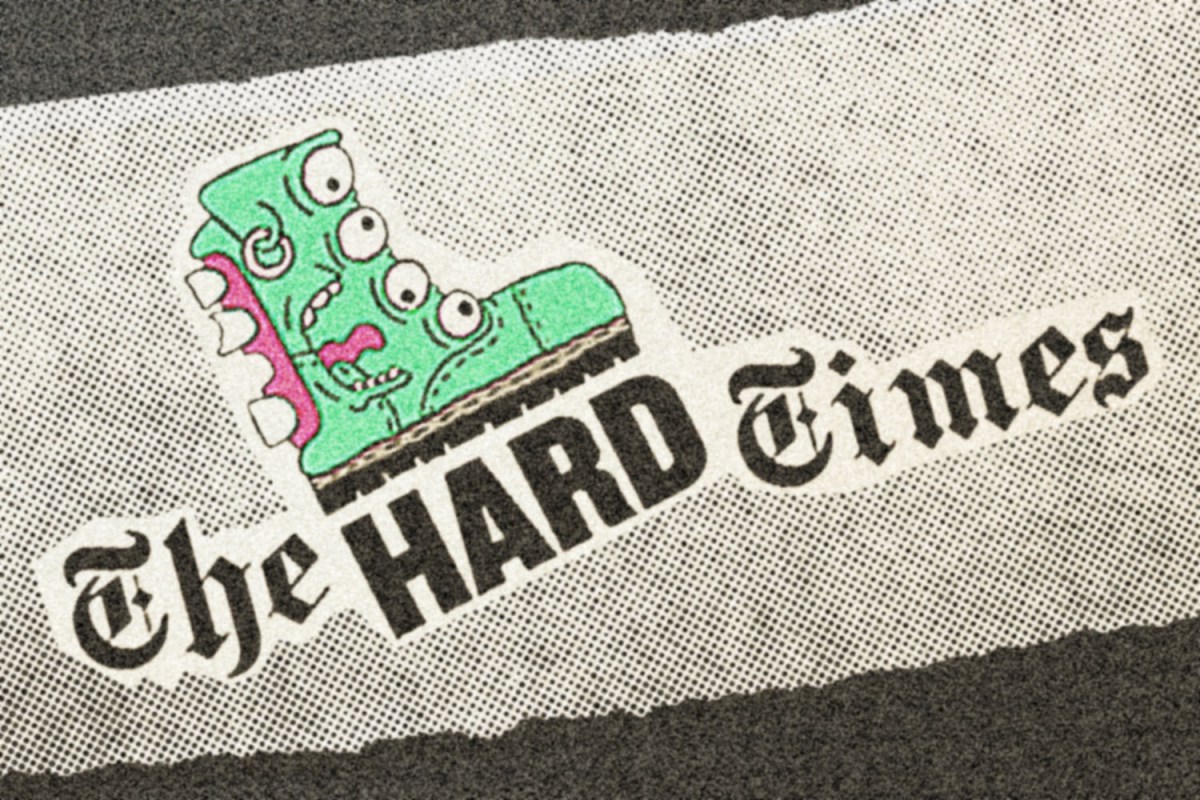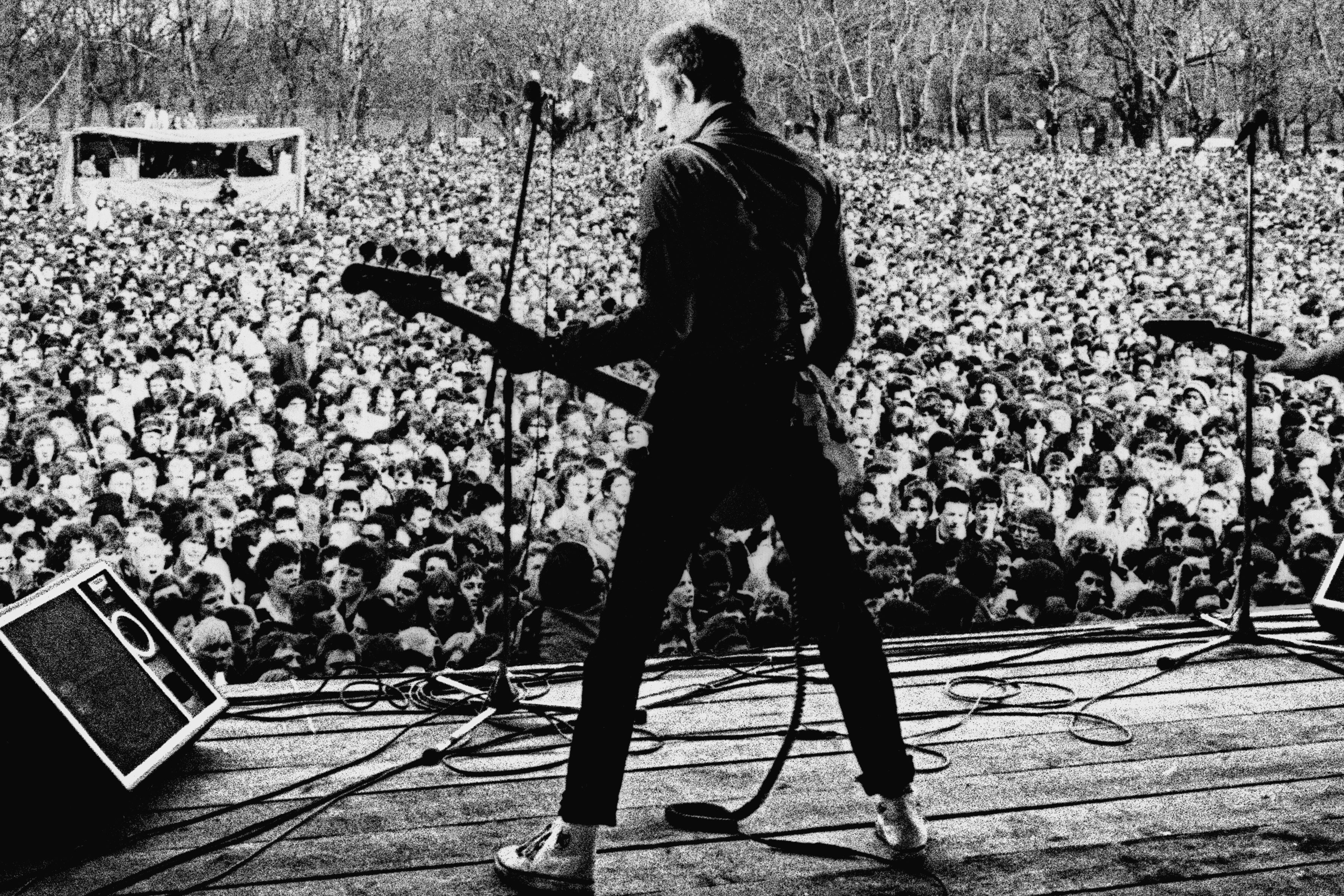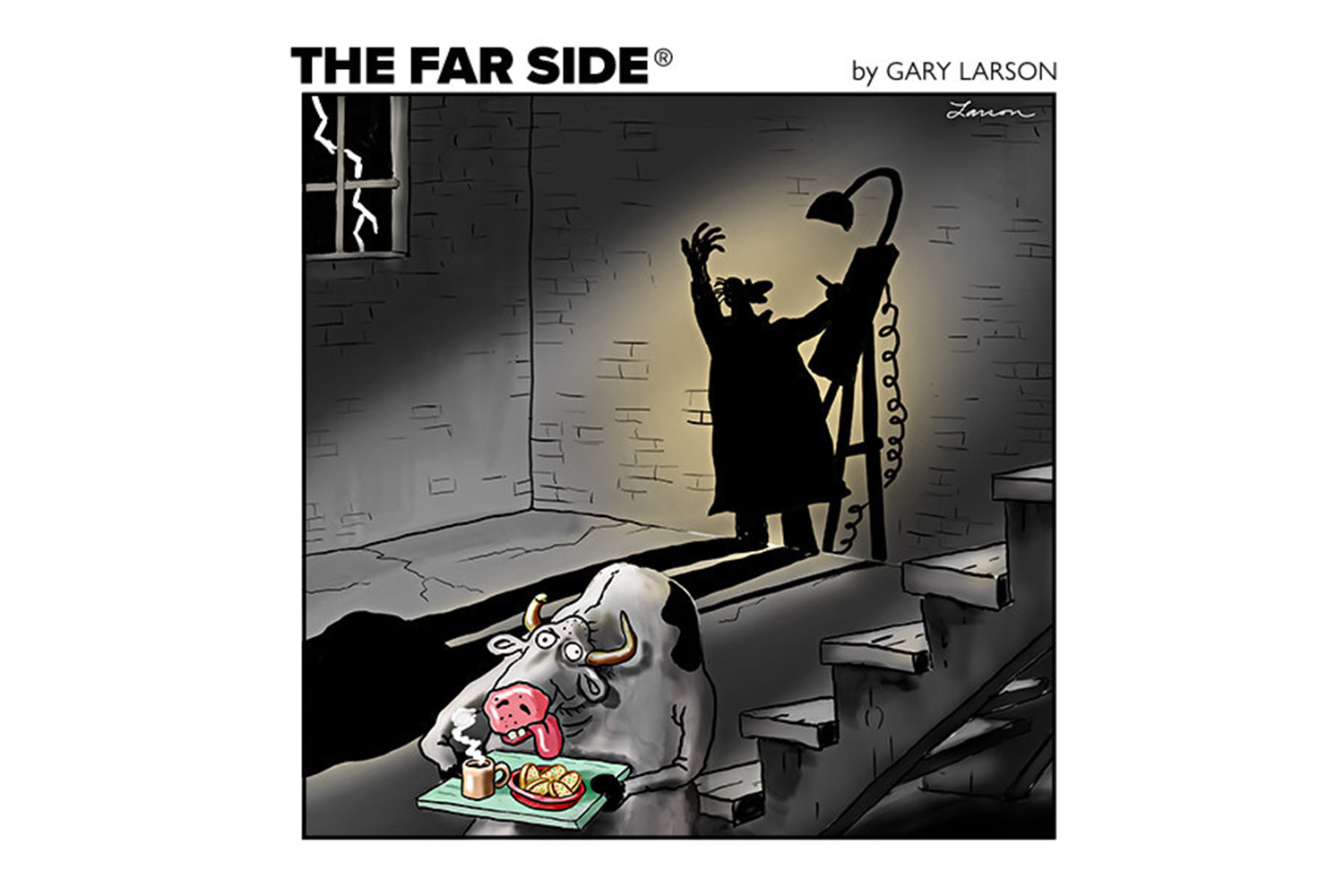When we’re living in a time when everything feels like satire, what would it take to inspire somebody to start a satirical website? For Matt Saincome, it was the sea. Well, the sea and bestiality.
“I was on a story about a guy who fucked a dolphin and wrote a book about it,” Saincome, founder and CEO of The Hard Times, tells InsideHook. It was 2014 and Saincome was working as a freelancer, struggling to scrounge enough assignments to pay his bills. “I wrote this profile and it was based in comedy. The tone was, ‘This guy fucked a dolphin. Isn’t that weird?’”
The profile for SF Weekly went viral, getting millions of views and inspiring a documentary on the subject. Saincome, meanwhile, made just 30 bucks for the assignment while paying out-of-pocket for the flight, gas, parking, hotel and other expenses required to report it. The unsustainability of being a freelancer got him thinking, “Look, if I’m the one who made the thing go viral, why don’t I just own the website?”
Hard Times co-founder Bill Conway’s support proved to be the spark needed to “go all-in” and put the idea into practice. “I come from that punk background, that DIY background,” Conway says. “I kind of just took that punk, DIY, I’m-going-to-build-this-thing-myself [approach].” Together, they did, and the Hard Times set itself apart with an underground aesthetic right from the beginning.
They launched with a music post, “Band Pretty Sure It’s Safe to Park Van Here Overnight,” which established the site’s ethos: comedic but rough around the edges, with rock-and-roll motifs appearing early and often. The Hard Times has never limited its contributors to specific topics or beats, covering everything from Jack White filing his tax return on a vinyl record to an article written from the perspective of a newly cleaned bathroom. What is constant is the dry and cynical tone typical of community messageboards during the early days of the internet. For newcomers, it might come off a bit like the Awl or the Onion, but look a little bit closer and you’ll identify its punk roots, as in the case of a piece poking fun at Google’s daily frontpage design by way of a GG Allin homage. “Some people love it and some people hate it,” Saincome says, “and we love that it’s this way.”
But writing a unique brand of comedy and successfully running a business are two different challenges. “[The site] would literally crash anytime someone tweeted or shared a story. It just couldn’t handle the traffic,” says Saincome. That’s when they began bringing in help, first recruiting Amber Bennoui as Chief Technology Officer to fix the technical issues. She was soon deemed a co-owner and given stock in the company. Contributors and editors, too, would become more involved than their titles indicated, often receiving interest in the company to match their passion and dedication.
The way the site generates its content is also a little different, operating more like a writer’s room than a stodgy, top-down news organization. “The Hard Times has some pretty unique things about our freelance contributor pool,” Saincome boasts. “Our contributors actually get to know each other, and they pitch ideas not just to editors, but to each other.”
It was a process inspired by Saincome’s years of experience as music editor at SF Weekly. “It allows a contributor to have some editorial sway at the website,” he says. Contributors get to shepherd an article through from pitch to publication. They can vote for or against ideas and chat with the community, and The Hard Times hosts yearly get-togethers to help bolster the community and build strong ties among their writers. This effort to enforce transparency and individuality is further harnessed by the site’s full-time staffers, who advocate for their contributors’ ideas and encourage them to start their own projects, the same way the Hard Times did: DIY-style.
“Once a year we do a grant program where our contributors come up with ideas, and we pick one of them and we give them $800,” Saincome says. The number is important because he started the site with just $800, the only money he had left in his bank account at the time.
Another example of this advocacy is Hard Drive, a vertical focusing specifically on video game-related content that was the brainchild of long-time Hard Times contributor — and now full-time staffer — Jeremy Kaplowitz. “We don’t want our freelancers to stay freelancers,” says Saincome. Another full-time staffer, Mark Roebuck, started out as a contributor as well.
Success, however, doesn’t always translate immediately into views. “I started to realize that every deal is just the deal that gets you to the next one,” says Saincome. The grind to keep a site going independently can make it easy to lose sight of the benchmarks, those moments when the hard work pays off. Saincome claims he never noticed until Kate Napolitano, Senior Editor at Houghton Mifflin Harcourt, reached out and asked if the site’s founders had any interest in writing a book. “We didn’t have a literary agent,” he says. “We weren’t knocking on doors. Someone came to us. [When it happened], there was a little bit of a ‘Wow.’”
Another humbling moment came by way of controversy. After a member of the American post-metal band Deafheaven spoke ill of the site, in true Hard Times form, contributor Josh Fernandez wrote the article “Deafheaven Bassist Falls Asleep Onstage” in response. It became the site’s first viral article. “[Deafheaven claimed] that punk wasn’t a joke, and so we ran a joke about them the next day,” Saincome laughs.
It took hitting close to Saincome’s punk and metal roots to understand just how big the site had become. “I think for me being a guy [who had played in] a band that wasn’t very popular, seeing my project in the Hard Times rise in popularity… it’s like, the comedy website is now becoming bigger than the thing it’s even critiquing. It felt a little unstoppable,” Saincome reminisces. “Like, OK, yeah, this was a good idea. This is going to work out.”
Hard Noise, the site’s second vertical, was another indication of the site’s growing and devoted readership, setting a new benchmark when it reached 3 million unique users per month. “I go way back with some Pure Noise [Records] guys, going to hardcore shows. We brainstormed up together this idea,” Saincome says. Identifying a cross section of the site’s readership, Hard Times and Pure Noise worked together to develop a brand that would cover the music they love, and this time they were leaving satire at the door.
“I think it’s an interesting experiment,” Saincome says. “There’s a very big difference between publishing comedy to publishing real music stuff. Real music stuff has more weight and meaning to it, but it’s just the way the social media algorithms work. It’s harder to get some takeoff there.”
Another innovation of the site: OutVoice, a company founded by Saincome to help automate freelance payments. “As soon as an article gets published on the Hard Times, the money moves into that contributor’s bank account without having them to create an invoice,” the former freelancer explains.
This past June, The Hard Times was purchased by Project M, a digital media company founded by Enrique Abeyta, a former Wall Street hedge fund manager who grew up going to punk shows. Project M has also purchased Revolver and Inked magazines. “[Enrique’s] tatted up to his fucking neck and he’s got tattoos on the side of his head. He’s a huge metalhead,” Saincome tells me enthusiastically.
The Hard Times was purchased for “a little over a million.” To anyone, this would be the very definition of “making it.” Saincome accepts the good news, but sees it more as an opportunity to continue the Hard Times grind.
“We started [the site] with $800,” he says. “It truly was the last money I had. And I put it all into a punk comedy website. I’ve been fighting ever since to make that sort of vision a real thing or a cultural presence that has some weight and can build up writers and editors, and we just sold it. Many of our editors were given chunks of the company early on. They all got a payday, and our editors who didn’t own a chunk [of the site], we gave them bonuses. The whole crew’s excited about it. Everyone feels like they’re part of the same team and Enrique is just the new leader of that team.”
For six years, the Hard Times had been constrained to publishing satire, but now, with Project M’s backing, they aim to build up their merchandising arm, build out a podcast network and more. “I’m organizing a ton of comedy and satire sites to all move together and offer a kind of group package,” Saincome says excitedly. “I can tell you details, but not all the details,” he continues, pausing a moment. “We’re teaming up with some of your favorite comedy websites pretty soon.”
He trails off before offering a prediction and a promise to the site’s long-time readers: “If you’re a fan of Hard Times, you won’t notice a difference, because it’s the same crew but with more resources and a renewed fucking wind in our sails. We’re very excited about the stuff that we’re going to be able to pull off this year.”
This article appeared in an InsideHook newsletter. Sign up for free to get more on travel, wellness, style, drinking, and culture.

























